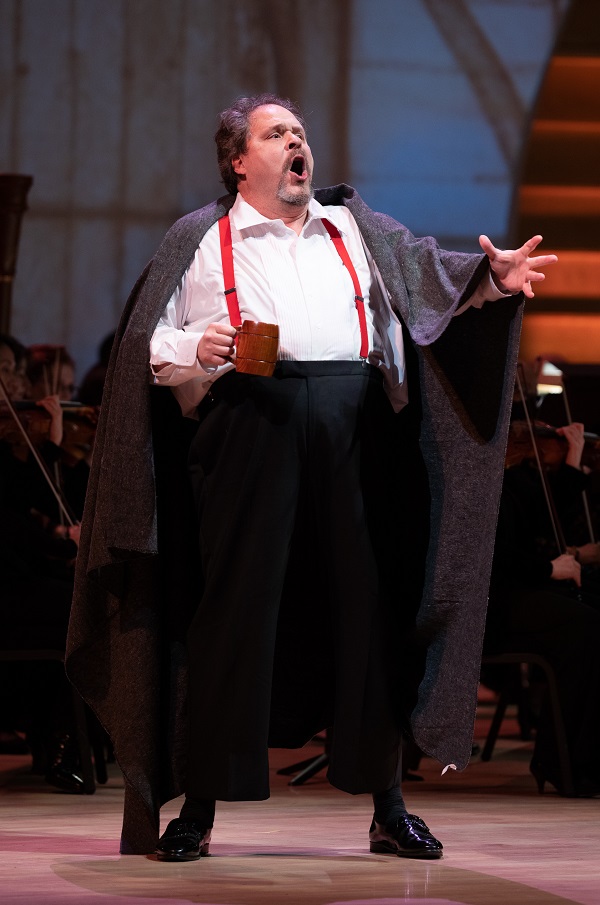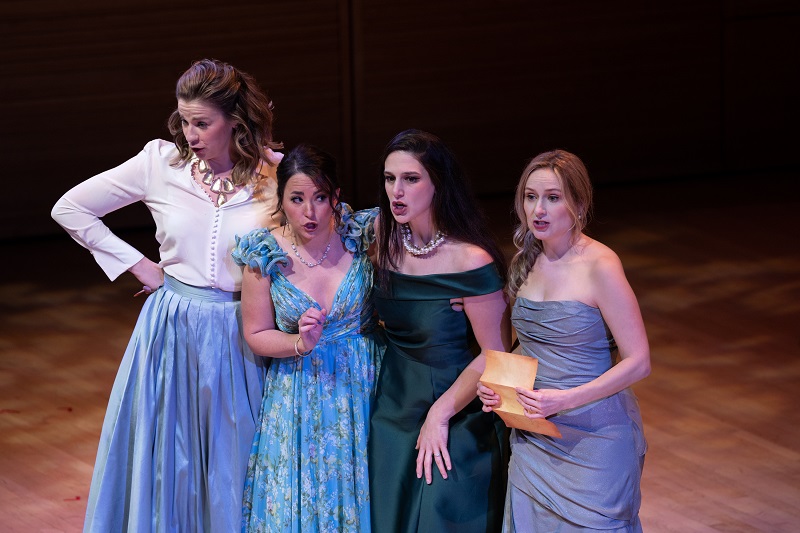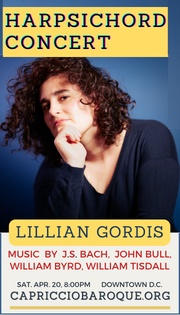Maryland Lyric Opera’s uproarious “Falstaff” has some rough edges

Mark Delavan sang the title role in Verdi’s Falstaff with Maryland Lyric Opera Friday night. Photo: Julian Thomas
Maryland Lyric Opera continued its season devoted to Giuseppe Verdi with the Italian composer’s final opera, Falstaff, premiered when he was nearly 80 years old. It is a comic masterpiece, a slapstick farce with an ending that is transcendent and even philosophical. Friday’s semi-staged performance in the Music Center at Strathmore featured a generally excellent cast, with some shakiness in ensemble execution.
The brilliant libretto, adapted by Arrigo Boito from Shakespeare’s The Merry Wives of Windsor, traces the disastrous attempts of Sir John Falstaff to woo two married women, Alice Ford and Meg Page. The wives, abetted by Mistress Quickly and Alice’s daughter, Nannetta, plot to humiliate the fat knight, only to be nearly caught themselves by Alice’s jealous husband. The latter gets his own comeuppance as Alice engineers Nannetta’s marriage to a young man, against her husband’s wishes.
Mark Delavan strutted admirably as the pompous knight, his form filled out with a fat suit. His bass-baritone thundered mightily in the tavern scenes, and he presided over the action with impeccable comic timing, if occasionally some rhythmic uncertainty. Boito fleshed out the character by adding scenes based on Shakespeare’s Henry IV plays, and Delavan’s interpretation was both hilarious and ultimately sympathetic.
(Sherrill Milnes, whose presence in the house was noted by the company’s general manager, Matthew Woorman, nodded approvingly. The veteran baritone knows the title role well from his own performances, including at the regrettably defunct Baltimore Opera in 1997.)
The quartet of conniving women was excellent, led by the soprano Mary Feminear as a seductive, occasionally powerful Alice Ford, seconded by the shape-shifting mezzo-soprano Allegra De Vita as a ravishing Meg Page. Outstanding mezzo-soprano Catherine Martin deployed her powerful bottom range as a smart-mouthed Mistress Quickly, reunited with Delavan from last season’s spectacular Don Carlo.

Left to right: Catherine Martin, Rachel Blaustein, Allegra De Vita, and Mary Feminear. Photo: Julian Thomas
Best among the women, however, was newcomer Rachel Blaustein, who made a sensational company debut as Nannetta. The radiant young soprano, who hails from Olney and did her graduate work at the Peabody Institute, floated velvet-gloved high notes in this crucial role. She flirted innocently in the stolen moments with her lover, Fenton, and made a resplendent fairy queen in the opera’s gorgeous final scene.
In another company debut, baritone Brian Major was in richly nuanced voice as Alice’s jealous husband, Ford, a sort of comic foil to the title character in Verdi’s other late magnum opus, Otello, which the company will perform later this season. Tenor Yi Li, an alumnus of the company’s training institute, made a charming, subtle Fenton. Joseph Michael Brent’s Bardolfo was outsized vocally and physically by the towering Pistola of bass Andrea Silvestrelli.
In his second podium appearance with Maryland Lyric Opera since the departure of music director Louis Salemno, Joseph Colaneri presided over this consummately difficult score. The coordination of ensemble scenes was mixed, with the group of men rushing ahead in the Act I finale, for example, when their duple meter is overlaid with the triple meter of the women, an ingenious musical rendition of the battle of the sexes.
The large orchestra had its struggles as well, with some unsteadiness in the horns and occasional lack of unity in the strings, including some prominent wrong notes in the violin section. The chorus, small in number but refined in sound (prepared by Husan Park), responded with surety from their place in the first balcony.
David Gately’s semi-staging gave an impression of the action, with set-like backdrops in the projections (designed by Sarah Tundermann), and lighting (designed by Stuart Duke) to create the mysterious night of the fairy scene. A few chairs and tables sufficed for props, with a large laundry basket providing the place for Falstaff to hide in the Act II finale, only to be dumped out the back door into the river.
Musically the evening reached its apogee, appropriately, in the concluding fugue, “Tutto nel mondo è burla” (Everything in the world is a jest), with singers and the orchestra firing away on all pistons. This brilliant moment was not included in Boito’s original libretto. Appending it to the Act III finale was Verdi’s idea, capping a ludicrous burlesque with the most learned type of composition from music history. The innovation provided a composer at the height of his powers the chance to laugh one last time, both at his listeners and at himself.
Falstaff will be repeated 2 p.m. Sunday in the Music Center at Strathmore. mdlo.org






